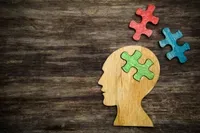Keeping The Coronavirus in Mind

by: Michael Upston, LCSW
"Hi, my name is Michael and I've washed my hands so much over the past few weeks they are cracked and chapped." Sound familiar? In an effort to keep ourselves and others safe, I suspect many of us have had similar experiences. The question becomes though, when is it too much?
Although the treatment can get complex, the nuts and bolts of helping people address anxiety is fairly simple. Help the person to identify the underlying feared consequences, and then give them experiences which demonstrate that these feared consequences are highly improbable. Do this enough times, and the anxiety decreases. This is the essence of exposure therapy, which, in various forms, is the gold standard for treating issues such as anxiety and Obsessive Compulsive Disorder (OCD). If you think about it, it's how we all learned to ride a bike or swim.
However, what happens when the feared consequences don't seem improbable? If somebody walks into a room where a hungry lion is actually present, the experience of fear and anxiety is not the product of a disorder, but a very sensible reaction to a real concern. As Dr. Marsha Linehan (2015) points out, in such a situation the goal would not be to help the person change their perspective, but rather to help the person problem solve. For example, run out of the room and call 911.
So, in the case of the coronavirus what are we to do? When are our concerns based in a reality that needs to be addressed, and when are our concerns based in unlikely catastrophic fantasies? How do we answer this question when it comes to the very unusual, tragic and anxiety-provoking reality that is the coronavirus?
If we take this question seriously, then we first must admit that it is not always easy to know the answer, but there are some basic mindfulness approaches that can help us get a sense of it. Mindfulness is not some mystical concept that is the product of recent self-help literature, but rather a term that has been a part of the English language for a long time. At the bottom of it, it means what it has always meant, which is to have something in mind. If you're mindful of something, you are aware of it, you are giving it your attention.
What I'm suggesting is that, in order to answer this question, we need to be aware of what actually is. The coronavirus is a fact. It's also a fact that we need to do certain things to reduce the risk of harm to ourselves and others. But it is not a fact that every thought that I have regarding it is based in reality. When I have a thought, I need to recognize it as a thought and not necessarily assume it is a fact. Before I can determine what the facts actually are, I need to observe, to be aware of, what is currently happening. Are there real reasons to believe that what I am thinking about will actually occur? Having good reasons to believe something will occur doesn't mean feeling that it will happen, or saying that it could possibly happen in some possible world. Rather it means determining that there is real evidence to suggest that it is a likely possibility. If this is not the case, then it should remain at the level of thought, because there is no real reason to think it is anything else.
I'm not saying any of this to dismiss or minimize the genuine concerns and the actual catastrophic consequences of the coronavirus. The devastation of this pandemic has been very real in many ways to many people. However, in this context we also have to take care of ourselves emotionally as well as physically. This means addressing the concerns we actually have a reason to believe are real, and not just automatically responding to every catastrophic thought we might be having. This is a lot easier said than done, but I do believe it offers a simple guide to help us have a measured response to this very difficult and stressful reality we find ourselves in.
References
Linehan, M. M. (2015). DBT skills training manual (second edition). New York: Guilford Press.
More Blog Posts
.webp)
Mental Health Activities for College Students
.webp)
Tackling Your OCD ~ Fugen Neziroglu, PH.D

Finding Comfort in the Moment: The DBT Self-Soothe Skill

You can experience life again. Let’s take steps together.
At Bio Behavioral Institute, we’re here to be your team and get you back to the life you deserve. Schedule your consultation and take the first step towards a more meaningful life.
Call our office at 516-487-7116 or complete the form to schedule your consultation.
